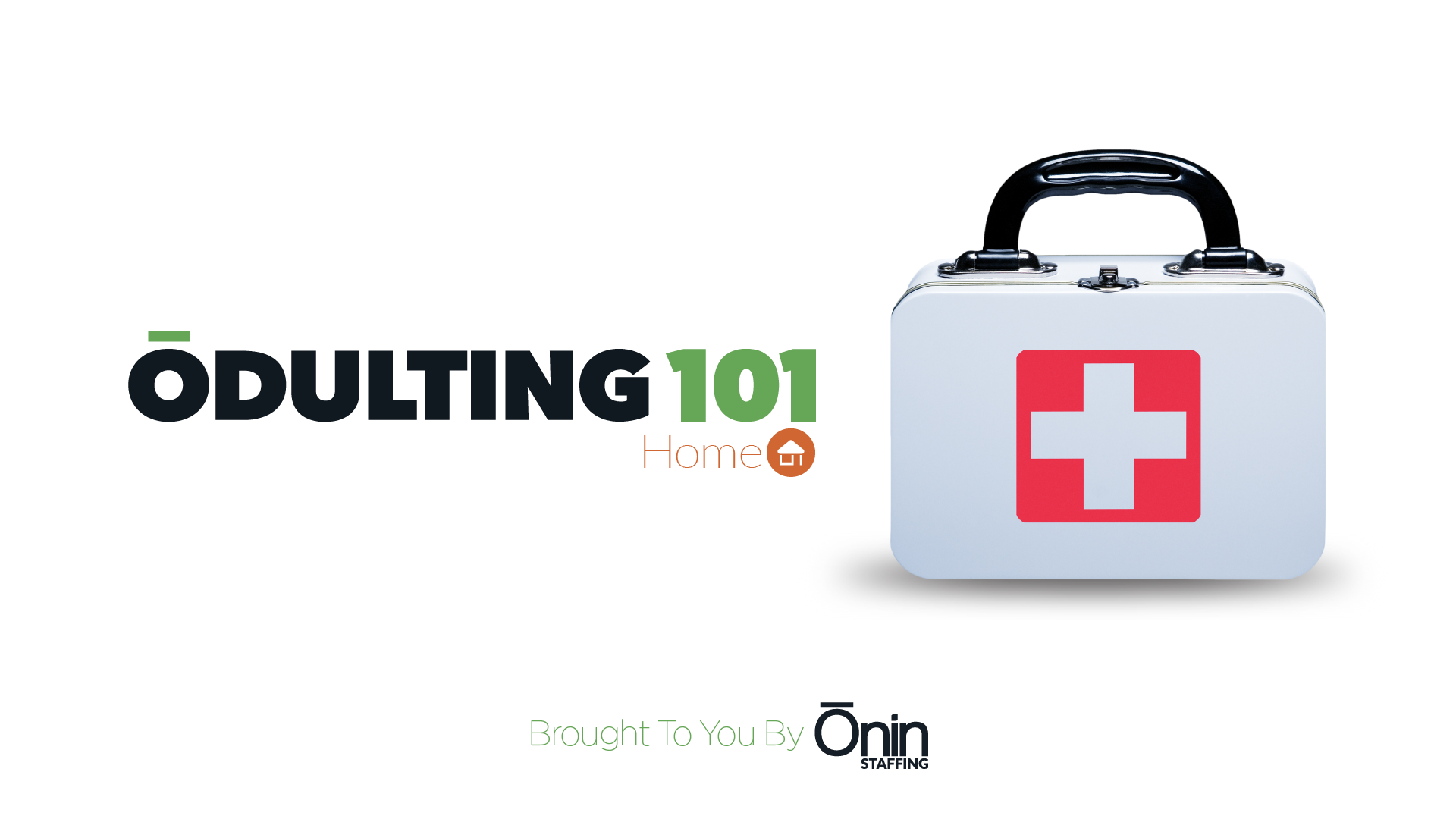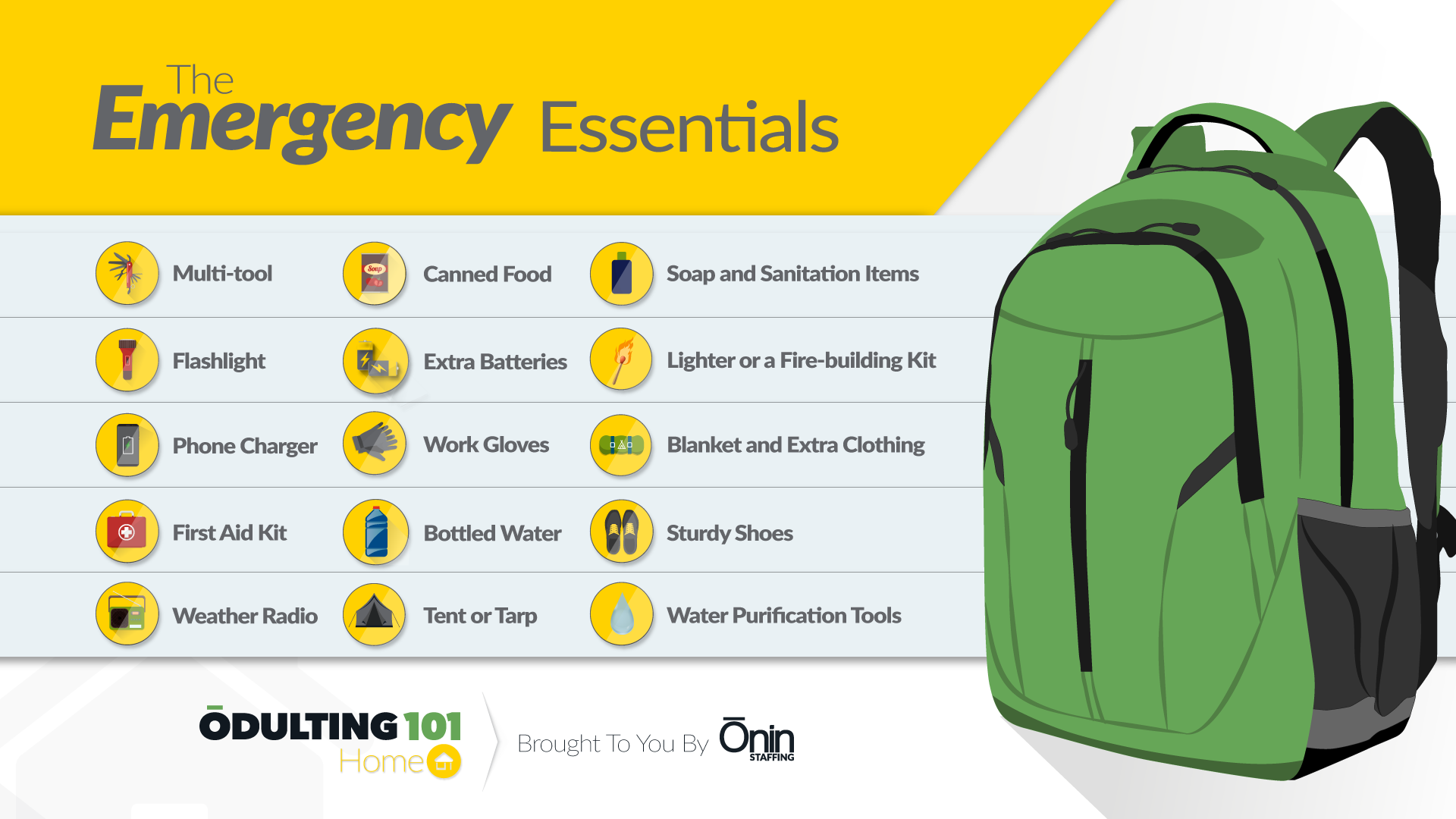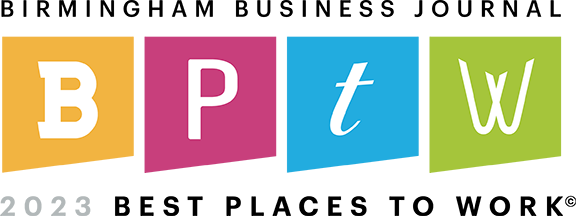
There are bad days, and then there are really bad days — like your apartment flooded or a tree fell on your car bad.
Those days are tough but the worst days of all are when an emergency threatens you or your family’s wellbeing. Prepare ahead of time so you can come out of the other side of an emergency.
We wish we could tell you that preparing for an emergency makes it easy to deal with, but the truth is emergencies are always hard. Tornados, floods, pandemics, earthquakes, hurricanes all suck, no matter how ready you were. The key thing to remember here is that the primary function of being prepared is to keep you and your’s alive in a crisis. Being prepared for the trouble can make a huge difference in your ability to survive, and it will help you remain level-headed, focused and calmer.
What’s The Worst That Could Happen?
When preparing for emergencies it is important to first think about the types of emergencies that could be thrown your way. There are those natural disasters that will normally be specific to where you live:
- Tornados
- Flooding
- Earthquakes
- Wild Fires
- Hurricanes/Tropical Storms
- Snow Storms
Then there are those emergencies that are universal. They could strike anywhere:
- Long-Term Power Outages
- Pandemics
- Financial Crises
- Medical Emergencies
- National or Local Critical Situations (terrorist attacks, shootings, etc.)
Once you nail down the potential events that could happen to you, it’s time to think about how to prepare for them. Will you need a place to shelter in or do you need to plan a place to “bug out”? Essentially a place to escape to. Will you need warm clothing or a boat or ATV to help you make it out alive? These considerations will help you best prep for the most likely emergencies for where you live.
Plan for Safety
Emergency preparation isn’t just about having a bag full of food and water. It’s about having a plan for how to stay safe. Make sure that you also flesh out the details of what you plan to do in each emergency.
- Have a meet-up spot for the whole family
- Know where you will you go if something happens to your home
- Determine some alternate routes out of town if roads are blocked
- Review the plan so the family is fully aware
- Have a trusted friend or family member who can help you in an emergency
- Create a list of phone numbers for emergency contacts
These plans are never fun to make nor are they fun to go over with your family but they will help keep everyone safe when something does happen.
If the worst never happens, it is still worth it. Always be prepared, because being caught unprepared can cost you.
Have Some Essentials Ready
As you nail down the things you will need, make a list so you can collect those items in your home or to purchase. Some common items to consider include:
- First aid kit
- Bottled water or water purification tools
- Canned food (don’t forget a can opener!)
- Blanket and extra clothing
- Phone charger or battery pack
- Sturdy shoes and work gloves
- Swiss army knife or multi-tool
- Tent or tarp
- Soap and sanitation items
- Flashlight (consider getting one of those fancy hand-crank ones)
- Weather Radio
- Extra batteries
- Lighter or a fire-building kit
You’ll also want make sure your personal information is in order just in case you need it quickly in the face of an emergency.
- ID
- Passport
- Social security cards
- Visas or work permits
- Birth certificates
- Insurance cards
- Critical medical records (shot records, allergies, etc.)
- Child custody documents
- House deed or car titles
Other Things To Consider
- Check your fire alarms a few times a year
- Make sure all windows and doors open properly in case of emergency
- If your windows are far from the ground, consider a roll-out emergency ladder
- Keep a first aid kit in your car and home
- Set up emergency alerts on your phone
- Familiarize yourself with general first aid and CPR
- If you live in a disaster-prone area, consider insurance protections that can help protect you financially
- Consider keeping a “get-home bag” or a bag of essential items you may need in an emergency in your car. This can include your ID, phone charger, extra clothing, food and water, a small first aid kit and a utility knife











